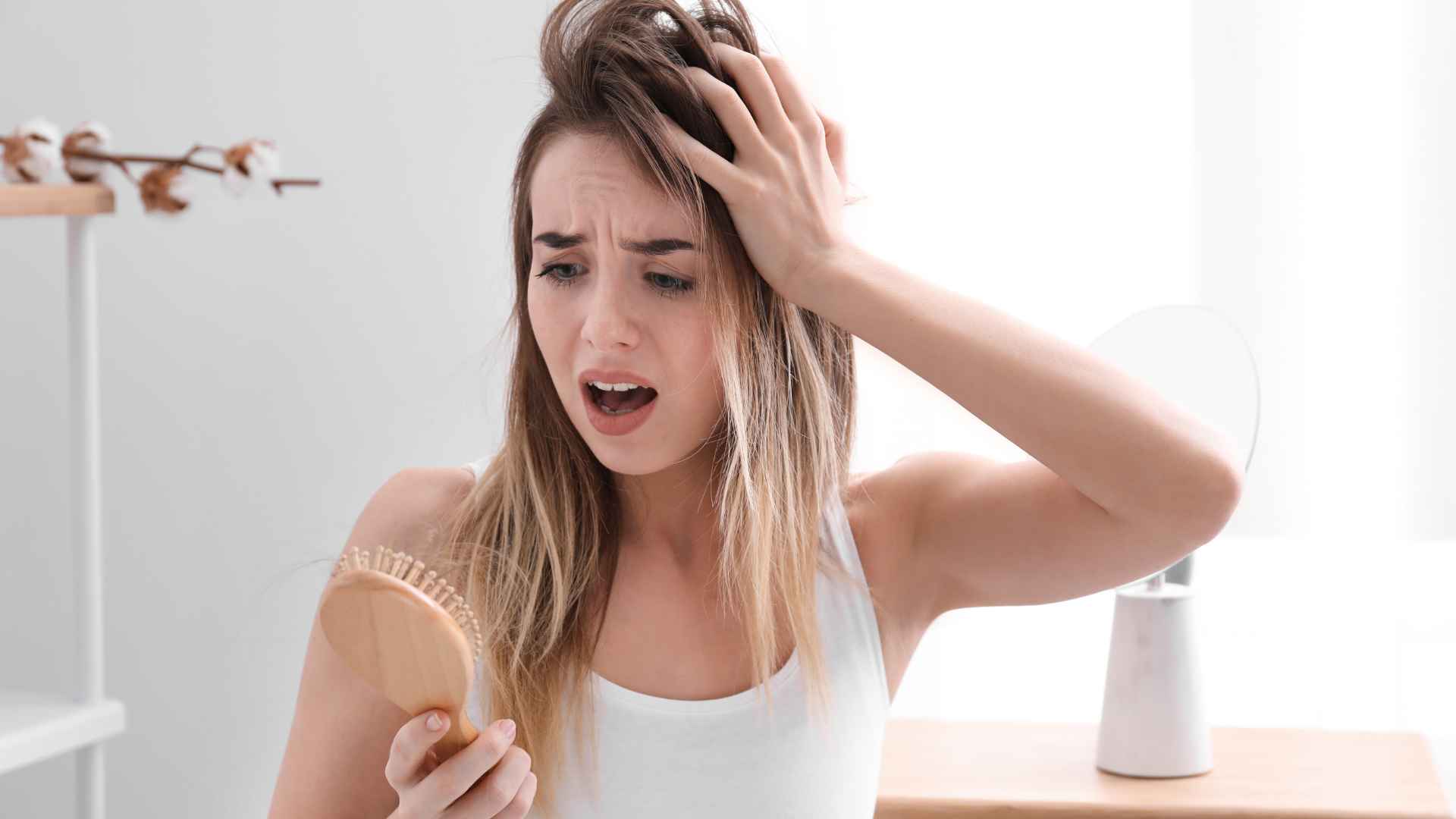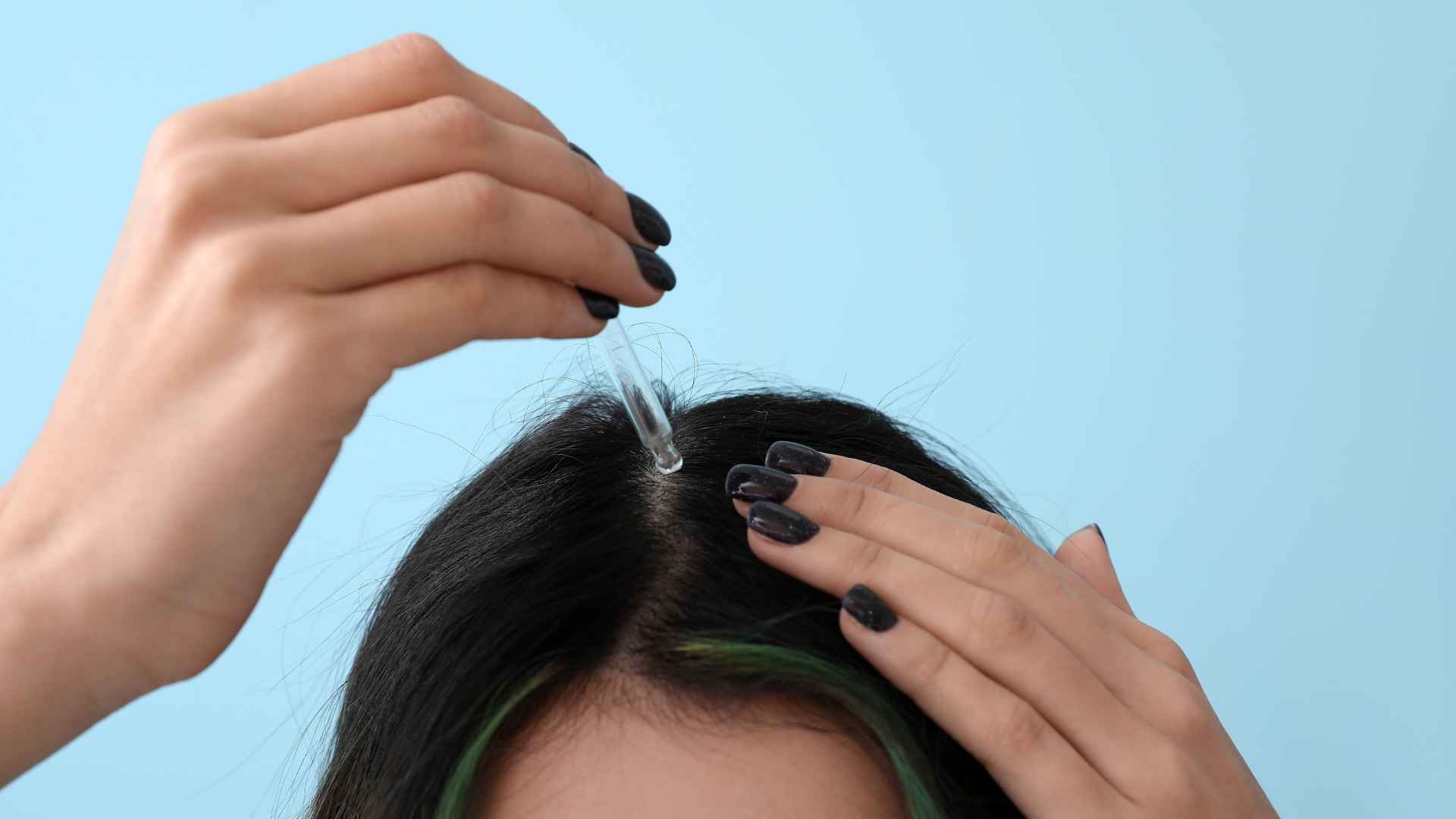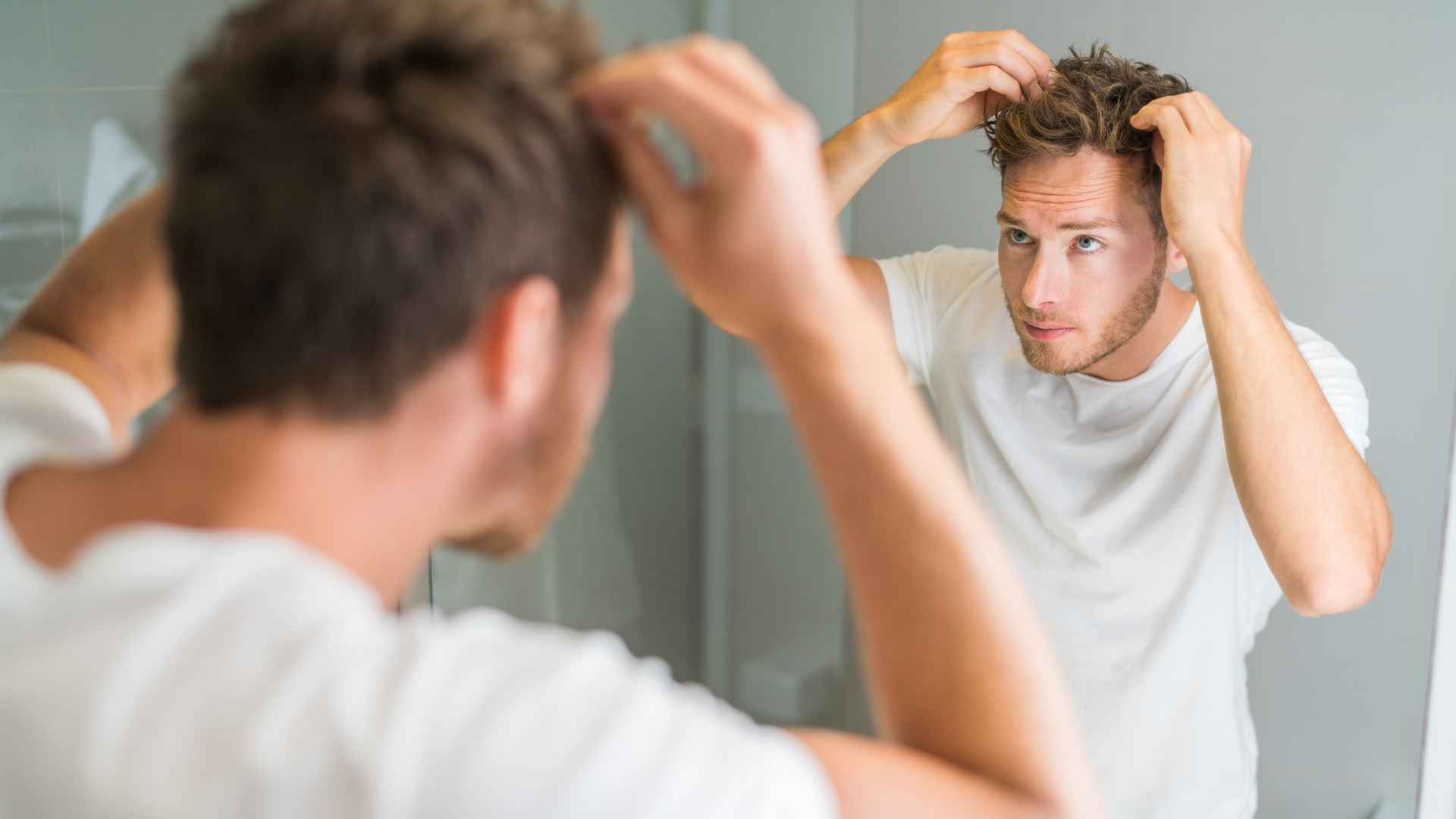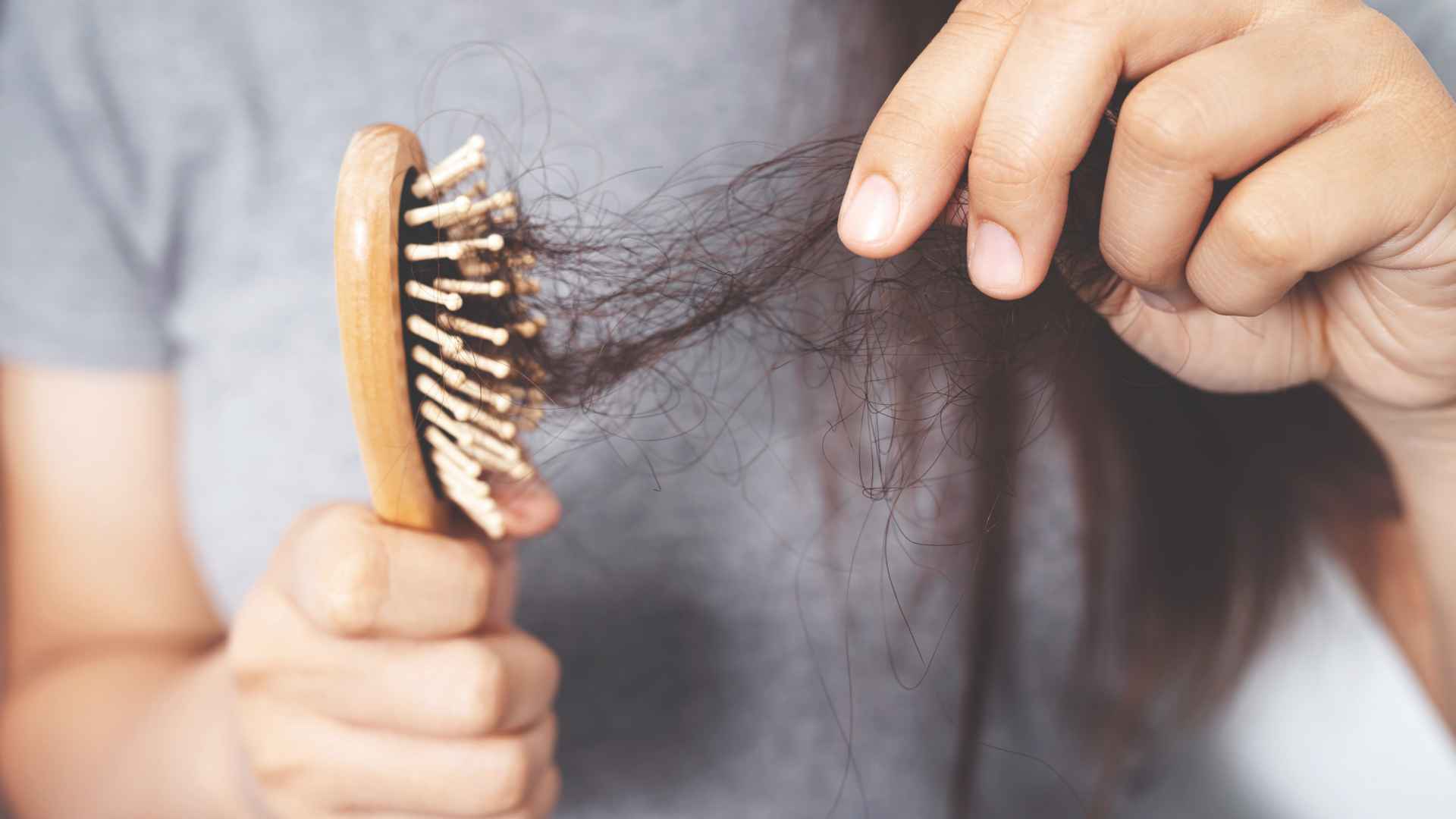Are you worried about hair loss and its potential impact on your self-esteem and confidence? You’re not alone. Many individuals value healthy and vibrant hair as an essential part of their appearance. Nutrition plays a crucial role in maintaining hair health, and one specific nutrient that stands out is zinc.
In this article, we will delve into the role of zinc in hair loss and how ensuring an adequate daily intake of this essential mineral can support hair growth and overall well-being. Let’s uncover the importance of zinc for your locks!
Understanding Hair Loss and the Role of Nutrients

Hair loss, also known as alopecia, refers to the loss of hair from the scalp or other parts of the body where hair usually grows. There are various causes of hair loss, including genetics, hormonal imbalances, medical conditions, and lifestyle factors. One of the less-known contributors to hair loss is nutritional deficiencies.
Nutrients play a vital role in maintaining healthy hair growth and overall hair health. A balanced diet that includes essential vitamins, minerals, and proteins is necessary for the proper functioning of hair follicles and the production of healthy hair. Among these nutrients, zinc stands out as an essential mineral with a significant impact on hair health. Zinc plays a crucial role in various physiological processes, including DNA and RNA synthesis, cell division, and protein synthesis, all of which are essential for hair growth and maintenance. By ensuring an adequate intake of zinc, you can support your hair’s health and potentially reduce the risk of hair loss.
Significance of Zinc for Hair Growth and Maintenance
Zinc is a crucial mineral for hair health as it plays a vital role in various biological processes that directly impact hair growth and maintenance. One of the key functions of zinc is its involvement in protein synthesis. Proteins are the building blocks of hair, and zinc is required for the synthesis of keratin, the main structural protein in hair. Adequate zinc levels promote the production of strong and healthy hair strands.
Moreover, zinc is essential for DNA and RNA synthesis, which are critical for the replication and repair of cells, including the hair follicles. Healthy hair follicles are necessary for robust hair growth and maintenance. Zinc also plays a role in cell division, which contributes to the growth of new hair follicles.
Additionally, zinc helps regulate the hormone levels in the body, including androgens like testosterone. Androgens can influence hair growth and may play a role in conditions like androgenetic alopecia, commonly known as male pattern baldness.
In summary, zinc supports hair health by facilitating the production of hair proteins, supporting cell replication and repair, and regulating hormone levels that can impact hair growth. Ensuring an adequate intake of zinc can contribute to healthier and stronger hair.
Scientific Research on the Relationship Between Zinc and Hair Loss

Scientific research on the relationship between zinc and hair loss has been conducted to investigate the potential benefits of zinc supplementation for improving hair growth and hair density. While more extensive studies are needed to establish conclusive evidence, several studies have shown promising results:
- A study published in the Annals of Dermatology in 2009 examined the effects of zinc supplementation in individuals with alopecia areata, an autoimmune condition that causes patchy hair loss. The researchers found that zinc supplementation led to a significant improvement in hair regrowth in some participants, suggesting a positive impact on hair health.
- Another study published in the Journal of Cosmetic Dermatology in 2017 investigated the effects of oral zinc supplementation on androgenetic alopecia (male pattern baldness). The researchers found that participants who received zinc supplements experienced a significant increase in hair density compared to those who received a placebo.
- A review published in the International Journal of Trichology in 2016 summarized several studies on the relationship between zinc and hair loss. The review concluded that zinc plays an essential role in maintaining hair structure and growth, and zinc deficiency may contribute to hair loss in some individuals.
While these studies indicate a potential correlation between zinc supplementation and improved hair growth in certain hair loss conditions, it is important to note that individual responses may vary, and not all types of hair loss may be influenced by zinc levels. Furthermore, excessive zinc intake may lead to adverse effects, so it is crucial to consult a healthcare professional before starting any supplementation.
In conclusion, while some scientific studies suggest a positive impact of zinc supplementation on hair growth and hair density in specific hair loss conditions, more research is needed to fully understand the role of zinc in various types of hair loss. For individuals concerned about hair loss, seeking professional advice and guidance on proper zinc intake and overall nutrition is essential for optimal hair health.
Recommended Daily Intake of Zinc for Adults and How It Varies Based on Age and Gender
The recommended daily intake of zinc can vary based on age, gender, and life stage. The recommended daily allowance (RDA) for zinc in adults is generally around 8-11 mg for women and 11-15 mg for men. Here’s a breakdown of the RDA for different age groups:
Adult Women (ages 19 and older):
- RDA: 8 mg to 11 mg per day
Adult Men (ages 19 and older):
- RDA: 11 mg to 15 mg per day
It’s important to note that pregnant and breastfeeding women have higher zinc requirements. The RDA for pregnant women is 11-12 mg per day, while breastfeeding women need 12-13 mg per day.
For children and adolescents, the recommended daily intake of zinc varies depending on their age:
Children (ages 1 to 8 years):
- RDA: 3 mg to 5 mg per day
Adolescents (ages 9 to 13 years):
- RDA: 8 mg per day
Adolescents (ages 14 to 18 years):
- RDA: 9 mg per day for boys
- RDA: 8 mg per day for girls
Zinc is an essential trace mineral that plays a crucial role in various bodily functions, including supporting the immune system, DNA synthesis, and protein production. As mentioned earlier, zinc also contributes to hair health by promoting hair growth and repair.
While zinc deficiency can lead to hair loss and other health issues, it’s important to avoid excessive zinc intake, as high levels of zinc can also have adverse effects. If you suspect a zinc deficiency or are considering zinc supplementation for hair health, it is recommended to consult a healthcare professional to determine the appropriate dosage based on individual needs and health status. A balanced diet that includes zinc-rich foods can also help meet the recommended daily intake of this essential mineral.
Connection Between Zinc Deficiency and Hair Loss

Zinc deficiency can indeed have an impact on hair health and may contribute to hair loss. Zinc plays a critical role in various biological processes, including cell division, protein synthesis, and DNA synthesis. These functions are essential for the growth and maintenance of hair follicles and the production of hair proteins.
When the body lacks sufficient zinc, it can disrupt hair follicle development and function, leading to hair thinning, shedding, and other hair-related issues. One common hair-related condition associated with zinc deficiency is telogen effluvium. Telogen effluvium is a type of temporary hair loss characterized by excessive shedding of hair strands due to a disruption in the hair growth cycle.
Zinc deficiency can also affect the structure of the hair shaft, resulting in weaker and more brittle hair. Additionally, it may lead to changes in the appearance and texture of the hair.
It’s important to note that hair loss caused by zinc deficiency is just one of many potential causes of hair loss. Other factors, such as genetics, hormonal imbalances, medical conditions, and lifestyle choices, can also contribute to hair loss.
Maintaining adequate zinc levels through a balanced diet is essential for overall health, including hair health. Foods rich in zinc include meat, shellfish, legumes, nuts, seeds, dairy products, and whole grains. However, if someone suspects a zinc deficiency or experiences persistent hair loss or hair-related issues, it is crucial to consult a healthcare professional for proper evaluation, diagnosis, and personalized treatment recommendations. In some cases, zinc supplementation may be recommended to address the deficiency and support hair health.
Zinc-Rich Foods That Can Be Incorporated into the Diet to Support Hair Health
Here is a list of zinc-rich foods that can be included in the diet to support hair health:
- Oysters: Oysters are one of the best sources of zinc, containing high levels of this essential mineral.
- Beef: Red meat, such as beef, is a good source of zinc. Lean cuts of beef are recommended for a healthier option.
- Poultry: Chicken and turkey are also excellent sources of zinc. Skinless and boneless poultry is a healthier choice.
- Nuts and Seeds: Various nuts and seeds, including pumpkin seeds (pepitas), sesame seeds, sunflower seeds, and almonds, are rich in zinc.
- Legumes: Legumes like chickpeas, lentils, black beans, and kidney beans are not only a good source of protein but also contain zinc.
- Whole Grains: Whole grains like wheat germ, quinoa, and brown rice provide zinc as well as other essential nutrients.
- Dairy Products: Dairy products like milk, yogurt, and cheese contain zinc, among other essential nutrients.
- Eggs: Eggs are a versatile source of zinc and can be easily incorporated into various meals.
- Seafood: In addition to oysters, other seafood like crab, lobster, and shrimp also contain zinc.
Including a variety of these zinc-rich foods in the diet can contribute to maintaining adequate zinc levels and supporting overall hair health. Remember that a balanced diet, along with proper hair care and lifestyle habits, can play a significant role in promoting healthy hair growth and reducing the risk of hair loss. If you have any concerns about hair health or suspect a zinc deficiency, consult with a healthcare professional or a registered dietitian for personalized advice and guidance.
Zinc Supplements for Individuals with Hair Loss Concerns
Zinc supplements can be considered for individuals with hair loss concerns, especially if they have a diagnosed zinc deficiency or if their healthcare professional recommends supplementation based on specific nutritional needs. Zinc supplements may help improve hair health and growth when hair loss is associated with a zinc deficiency.
Before starting any supplements, it is crucial to consult with a healthcare professional, such as a doctor or a registered dietitian. They can assess your individual health status, review any medications you may be taking, and conduct tests to determine if you have a zinc deficiency or other underlying factors contributing to hair loss.
Taking zinc supplements without professional guidance may lead to unintended side effects or interactions with other medications. Additionally, excessive zinc intake can interfere with the absorption of other essential minerals like copper, which can cause health issues.
A healthcare professional can recommend the appropriate dosage of zinc supplements based on your age, gender, health condition, and specific needs. They can also monitor your progress and adjust the dosage as necessary to ensure safe and effective supplementation.
Remember that while zinc is an essential mineral for hair health, a balanced diet that includes zinc-rich foods, as well as other nutrients and vitamins, is the foundation for promoting overall hair health. If hair loss is a concern, a comprehensive approach that includes proper nutrition, hair care practices, stress management, and lifestyle habits is essential to support healthy hair growth and maintenance.
The Role of a Balanced Diet with a Variety of Nutrients That Support Overall Health and Hair Growth
While zinc plays a crucial role in promoting hair health, it is essential to understand that hair growth and maintenance are influenced by multiple factors. A balanced diet that includes a variety of nutrients is fundamental for overall health and, in turn, supports healthy hair growth.
In addition to zinc, other nutrients such as vitamins A, C, D, E, and B-complex vitamins, as well as minerals like iron, biotin, and protein, are all important for hair health. Each of these nutrients contributes to various aspects of hair growth, from supporting hair follicle function to promoting the production of keratin, the primary protein that makes up hair strands.
A well-rounded diet should include a variety of whole foods such as fruits, vegetables, whole grains, lean proteins, nuts, and seeds. These foods provide a rich array of vitamins, minerals, and antioxidants that support overall health and help maintain vibrant hair.
Furthermore, staying hydrated, managing stress levels, getting adequate sleep, and avoiding harmful hair treatments are all important aspects of maintaining healthy hair.
Remember, hair loss can have various causes, and addressing nutritional deficiencies is just one part of the solution. If you are experiencing significant hair loss or have concerns about your hair health, it is essential to consult with a healthcare professional. They can help identify any underlying issues and provide personalized recommendations for managing hair loss or improving hair health based on your individual needs. Taking a holistic approach to hair care and overall well-being will ultimately contribute to healthier, stronger, and more beautiful hair.
Watch Taking zinc for skin & hair – dermatologist | Video
Top 5 FAQs and answers related to how much zinc for hair loss
Can zinc supplements reverse hair loss?
While zinc is essential for hair health, taking zinc supplements alone may not completely reverse hair loss. Hair loss can have various causes, and zinc deficiency is just one factor among many. Zinc supplements may be beneficial for individuals with a zinc deficiency, but it is crucial to address other underlying factors that contribute to hair loss. Consultation with a healthcare professional is recommended to determine the appropriate treatment plan based on individual needs.
How much zinc should I take for hair loss?
The recommended daily intake of zinc for adults is generally around 8-11 mg for women and 11-15 mg for men. If you suspect a zinc deficiency or are experiencing hair loss, it is essential to consult with a healthcare professional before starting any supplements. They can assess your specific needs and recommend the appropriate dosage based on your health status and potential zinc deficiency.
Can taking too much zinc cause hair loss?
While zinc is essential for hair health, excessive zinc intake can have adverse effects. Taking high doses of zinc supplements for an extended period can lead to zinc toxicity, which may cause hair loss and other health issues. It is essential to follow the recommended daily intake guidelines and avoid taking excessive amounts of zinc without professional guidance.
How long does it take for zinc supplements to show results for hair loss?
The timeline for seeing results from zinc supplementation for hair loss can vary depending on individual factors and the underlying cause of hair loss. Some individuals may notice improvements within a few weeks, while others may require several months of consistent supplementation. Patience and adherence to a well-balanced diet are key to supporting hair health.
Are there any side effects of taking zinc supplements for hair loss?
When taken within the recommended daily intake, zinc supplements are generally safe for most individuals. However, some people may experience mild side effects such as nausea, stomach upset, or changes in taste. Zinc supplements may interact with certain medications or health conditions, so it is crucial to consult with a healthcare professional before starting any supplementation to ensure safety and efficacy.
Conclusion

In conclusion, we have explored the role of zinc in hair loss and its importance for maintaining healthy hair. Zinc plays a significant role in hair growth and follicle repair, making it a crucial nutrient to support overall hair health. While zinc deficiency can contribute to hair loss, it is essential to recognize that hair loss is often multifactorial, and addressing zinc deficiency alone may not completely reverse hair loss.
To support hair health, it is recommended to maintain a balanced diet with a variety of nutrients, including zinc-rich foods like oysters, beef, poultry, nuts, seeds, legumes, and whole grains. If concerned about hair loss or suspect a zinc deficiency, consulting with a healthcare professional is essential. They can assess individual needs, recommend appropriate zinc supplementation if necessary, and explore other factors that may be contributing to hair loss.
Remember that achieving optimal hair health requires a holistic approach, considering various lifestyle factors, stress management, and overall well-being. By prioritizing a well-rounded diet and seeking professional advice, readers can take proactive steps towards maintaining healthy and vibrant hair.
Please share this How Much Zinc for Hair Loss: Can It Regrow Hair? Guide with your friends and do a comment below about your feedback.
We will meet you on next article.
Until you can read, Can Vitamin D Deficiency Cause Hair Loss: Symptoms Guide
